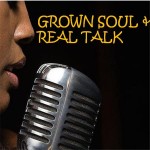Podcast: Play in new window | Download

Money’s all about counting right? How much do we have? How much did we lose? How much do we earn? How much are we worth, etc? I rarely use statistics. There’s a few reasons.
First of all, statistics can be used to prove any point a person wants to make. If you’re smart enough you can prove anything with statistics. Even if the numbers don’t appear to support your point.
Secondly, statistics are boring and take the human being element out of the conversation. I’m not going to reduce myself or anyone else to a mere number on a chart. It’s cold, lacks heart, and just doesn’t jive with how I roll.
Most importantly, statistics have a way of mesmerizing us. They have this weird hypnotic quality about them. And most folks seem to really get glassy eyed when the statistics are from some “authority figure.” Putting people into categories with numbers feels like lab rat stuff to me.
And you are much more than a number or lab rat. No doubt about it. I’m willing to bet you’re in the minority of free thinkers who are awake and don’t let statistics decide for you. Critical thinking is what I’m talking about.
I don’t need to puke a bunch of numbers on you to convince you something needs to change in The US economy. Of course I don’t. You look around and you know something ain’t jivin’ baby. Likewise, if your personal economy is lacking you don’t need a graph to explain it. You know because of how it feels.
So I choose to approach things from the human being side of your nature. If you hear something that really strikes a cord inside it’s because light recognizes light. I say let’s take this thing called learning about money “From the boardroom suite to the street.” Thank you Robert Wesley Branch for that quote.
You aren’t a number. The Social Security Administration may think otherwise. The IRS may think otherwise. Your insurance company may think otherwise. Don’t buy into it. You work the numbers. The numbers don’t work you. Money is a tool. Money is the slave and you are it’s master. Not the other way around.
Numbers are a sign post that point to an underlying behavior. Numbers show us effect or end result, not cause. If your savings account is consistently at a zero balance, the zero is an indication of your behavior. You have a seeming inability or unwillingness to save money. To solve that problem, you have to work on the cause (your behavior) not the effect (zero balance).
Resource:
Shadow Statistics
Give us a call on our voicemail feedback hotline at 615-200-7189 or drop Greg an email at:
greg [at] debtshepherd [dot] com










